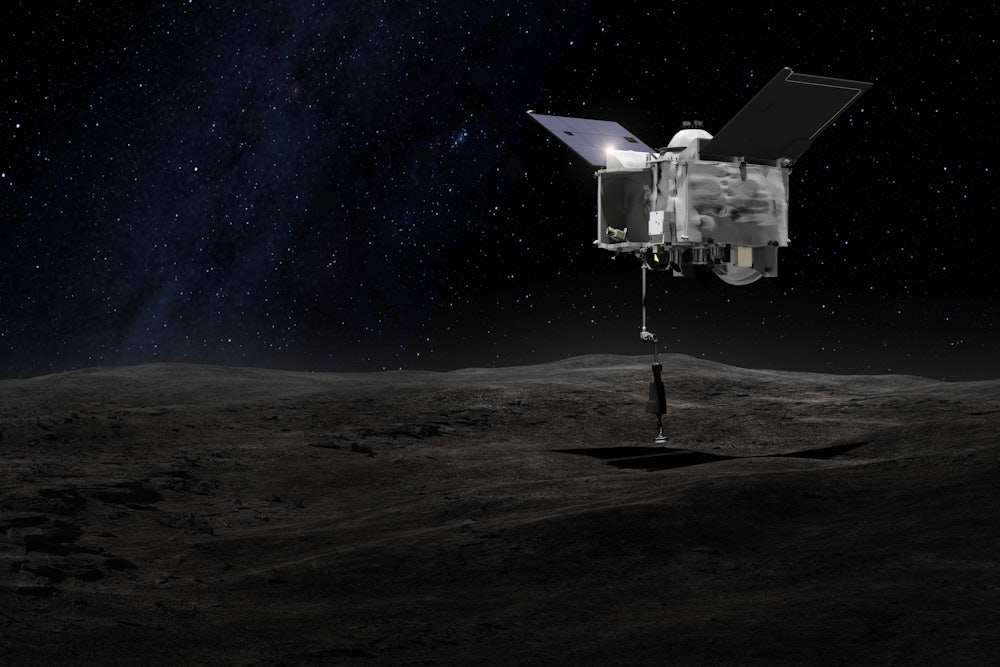Now that we’re on the brink of pushing our own earth to the max of its capabilities and resources, the world’s finest capitalists are looking to space as their next frontier. While private space travel has already become a thing thanks to companies like Virgin Galactic and SpaceX, the former owned by Richard Branson and the latter spearheaded by Elon Musk of Paypal and Tesla Motors fame. It should come as unsurprising that Branson, along with Google founder Larry Page, are behind this new interest in space mining. Read Shannon Stirone’s report for The New Republic in partial below, or in full here.
On September 8, NASA is embarking on a new mission to investigate the origins of the universe. Launched from Cape Canaveral, Florida, a small spacecraft, the OSIRIS-REx, will journey 509 million miles to an asteroid called Bennu. Named for an Egyptian deity linked to the sun and creation, Bennu has likely gone untouched for the past four billion years, offering us a valuable glimpse into the early days of our solar system.
The spacecraft will orbit the asteroid for approximately 19 months. Once it has mapped Bennu’s surface, the Osiris-rex will inch closer to the asteroid. Then its eleven-foot robotic arm will reach out and collect a two-ounce sample to bring back to Earth in 2023.
A seven-year journey to fetch a candy bar–sized sample of rock hasn’t sparked the kind of global excitement reserved for, say, the prospect of blasting Sir Richard Branson off the planet and into deep space. But there’s a bigger game at play here: The precious minerals and metals in asteroids may be worth billions of dollars to galactic prospectors, and NASA’s mission is paving the way for an outer-space gold rush.
Asteroid mining hasn’t even begun, and it’s already being privatized: Several for-profit companies are currently jockeying for position in the fledgling industry. Planetary Resources, founded in 2009 in Redmond, Washington, counts Branson and Google co-founder Larry Page among its investors. James Cameron, the director of Avatar and Titanic, serves as an adviser. A Silicon Valley–based company named Deep Space Industries, founded in 2013, is also at the forefront of the industry.
The initial goal for both companies is to mine asteroids for water, an essential commodity for long-duration space travel. If humans ever travel into deep space—to Mars, for example—we will need water for life support and fuel. But it’s prohibitively expensive to take all of the necessary water supplies with us from Earth. A company that can develop the technology to find and extract water from an asteroid could set up the H2O equivalent of a gas station in outer space—a potential gold mine.
From there, space prospectors plan to move on to asteroids with high iron content and others that contain rare metals—the raw materials that will allow us to set up not just gas stations, but entire communities in space.
“In the same way we moved into the frontiers of this planet and lived off of the land, fished and hunted, and built log cabins and all kinds of things using local resources, that is really what we are looking to repeat in space,” says Chris Lewicki, the CEO of Planetary Resources. The company, which last year launched a test craft from the International Space Station, believes it could be excavating asteroids before the decade is out. Its competitor, Deep Space Industries, has a similarly grand vision of the future. “In 30 years’ time, the vision is to be building cities in space,” says CEO Daniel Faber.
*Image via NASA
